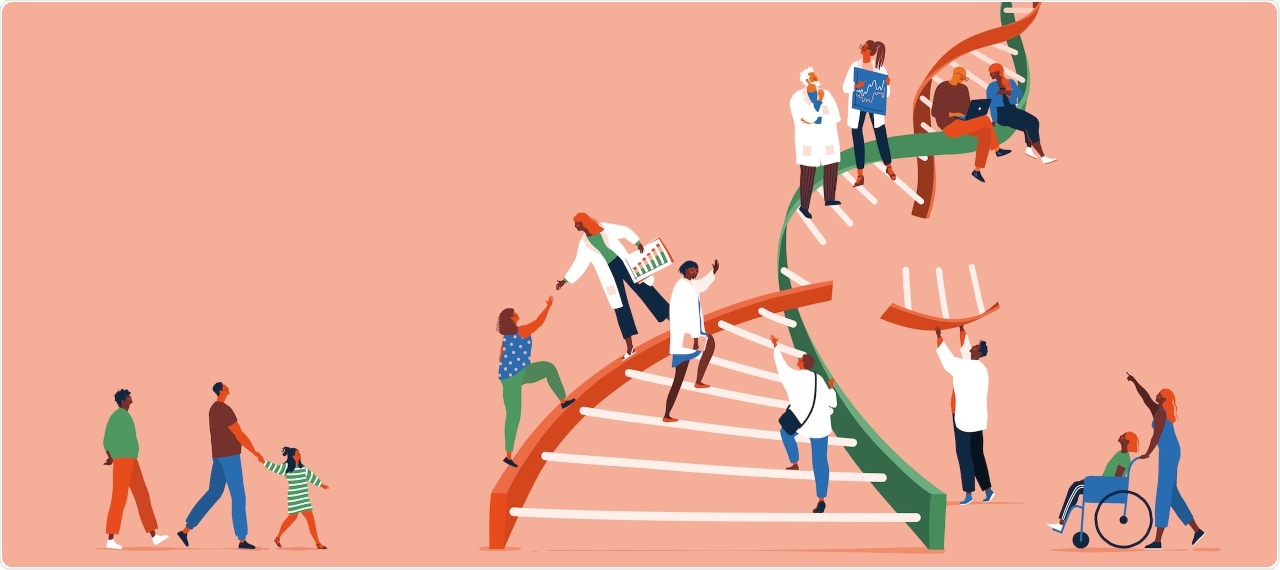Two dozen ‘ordinary Aussies’ tackle whether scientists should be able to change our genes to prevent disease or create superhumans

Citizen juries are ideal for probing the complexities of genome editing. Credit: Alice Mollon
Two dozen perfectly ordinary Australians are about to turn up in Canberra to examine how the country might make its mind up about complex issues such as genome editing.
The group, drawn from around the nation, will form a Citizens’ Jury – an innovative mechanism for reflecting community opinions. Such juries are increasingly used around the world to inform all levels of government.
Genome editing can potentially prevent conditions such as sickle cell disease, cystic fibrosis and even some forms of cancer. But there are concerns about the risks and benefits of genome editing, and fears that at some stage in the future it could be used for such things as producing babies engineered for super-strength or musicality.
The jury is set to reflect deeply on the pros and cons of this challenging subject. The idea is a product of a new approach to developing inclusive social policies, and generating broader community conversations, known as “deliberative democracy”.
It has been put together by a group of researchers led by Professor Dianne Nicol, Director of the Centre for Law and Genetics at the University of Tasmania, and Professor Simon Niemeyer, head of Australia’s Centre for Deliberative Democracy and Global Governance at the University of Canberra, joined by his colleagues Professors Nicole Curato and John Dryzek.
“This event will demonstrate why it is good for democracy to let everyone – plumbers, teachers, cooks and sailors – have a say on important matters,” said Professor Niemeyer.
Professor Nicol added: “It is well recognized globally that in novel and contentious areas such as this it is equally as important to hear from ordinary members of the public as it is to hear from experts.
“The Citizens’ Jury gives members of the public the opportunity to meaningfully reflect and deliberate on the complexities of the science and the ethical, legal and social issues it raises.”
The jury is the first of a series to be held around the world, culminating in a global citizens’ assembly in Athens. The plan arose after a research paper written by Dryzek, Nicol, Niemeyer, Curato and colleagues was published in the influential journal Science.
The paper analyzed how groups of non-specialists, properly guided, can provide intelligent, reasoned and insightful responses to complex issues – thus providing a balance to opinions advanced by activists and other vested interests.
Professor Curato, also a leading researcher into the potential and effects of deliberative democracy, said: “The opportunity to see the jury process in action is fantastic. It will give us a real-world opportunity to test our procedures and methods and tweak them, if necessary, for next time. I’m confident that citizens’ juries will soon become a standard part of the way Australian governments arrive at policy positions.”
“These juries are made up of citizens with no history of activism on an issue. It means they are good at reflecting on the relative weight of different values and principles,” said Professor Dryzek.
“Think of how we trust juries in court cases to reach good judgements. Deliberation is a particularly good way to harness the wisdom of crowds. It enables participants to piece together in constructive and considered fashion the different bits of information that they hold.”
The jury will convene at the Museum of Australian Democracy on Thursday, June 17, and sit across the weekend.
The museum’s director, Daryl Karp, welcomed the event. “The Museum of Australian Democracy is proud to be hosting a conversation of global importance,” she said.
We value the engagement of citizens, informed public discussion, and finding common ground in complex decision making. So it’s our great pleasure to be partnering with the Citizens Genome Jury on this unique and dynamic project. We look forward to seeing how the results of this project shape future conversations and policies.”
Daryl Karp, Museum’s Director
The project is funded by the Medical Research Futures Fund Genomic Health Futures Mission.
Source:
Journal reference:
Dryzek, J.S., et al. (2021) Global citizen deliberation on genome editing. Science. doi.org/10.1126/science.abb5931.